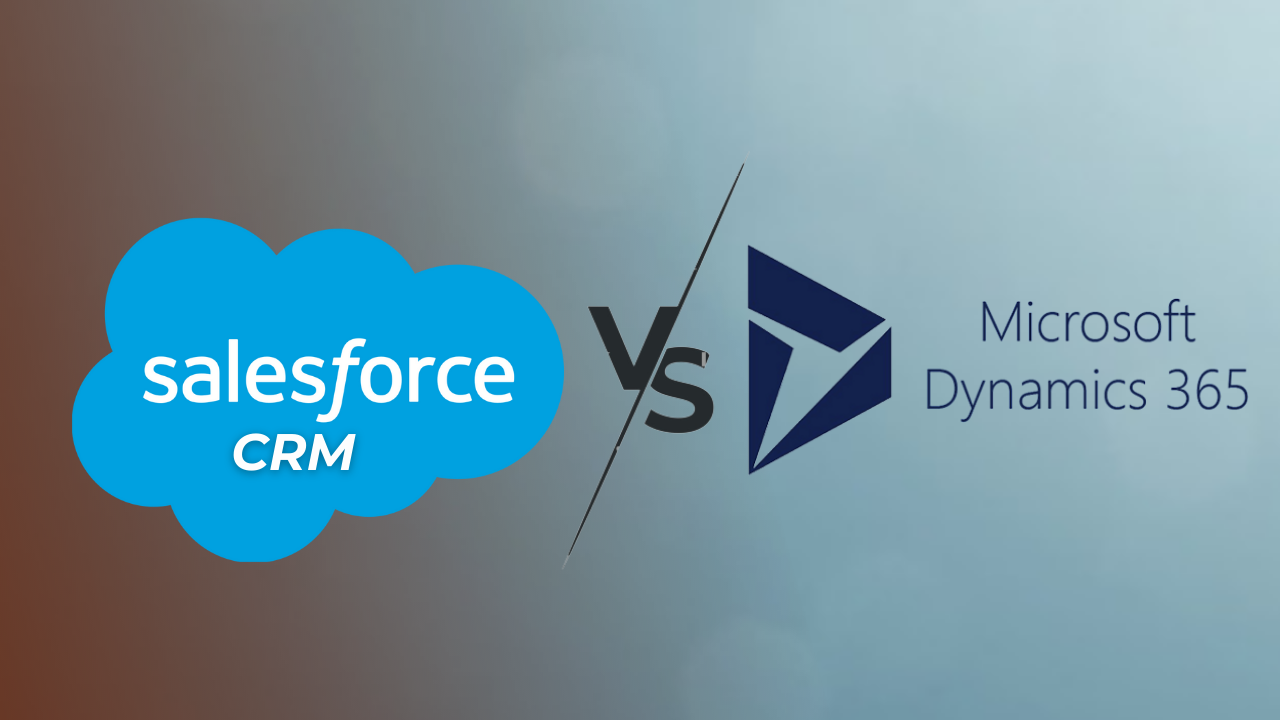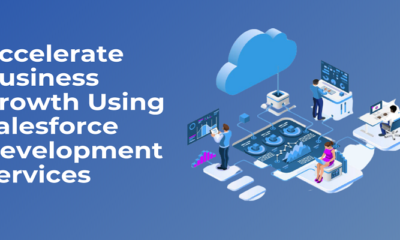Technology
Salesforce CRM Vs Microsoft Dynamics 365: Implementing the Right CRM For Your Business

Customer Relationship Management (CRM) is crucial for businesses to stock prospect and customer data, monitor customer interactions, and provide this information to other stakeholders. CRM helps businesses to manage customers and relationships, enabling the company to grow.
Salesforce and Microsoft Dynamics 365 are recommended CRM platforms providing sales support and customer relationship monitoring, with features that make them the best CRM platforms in the market.
Read ahead as we outline and compare various aspects of both the CRMs, to assist you to opt which one settles well together with your business.
Specialties
Microsoft Dynamics 365
- With its Customer Voice feature, Dynamic 365 can get better insights into how its customers feel.
- Provides AI-driven insights to trace customer trends and emerging markets.
- In the Field Service sector, Dynamics 365 is more advanced, developed, and well-integrated with CRM.
Salesforce
- Provide territory management.
- Its Einstein AI is assumed to be better than that built into Dynamics 365’s CRM.
- Marketing features were built a lot earlier and are more advanced and well-adapted to the CRM landscape.
AI Capabilities
Microsoft Dynamics 365
- Gives sales predictions.
- Monitors customer needs and upcoming market trends.
- Gives relationship health updates enabling quick flagging of at-risk deals.
- Considers older sales interactions to propose talking points and therefore the next best action.
- Provides contextual guidance throughout the sales cycle.
Salesforce
- Presents answers to all customer questions.
- Has highly developed AI learning algorithms to work out every company’s different selling habits and suggest improvements accordingly.
- Provides effective tactics and marketing strategies.
Pricing
Microsoft Dynamics 365
- You can either purchase a separate standalone app or license several apps to license these CRM solutions.
- While Dynamics 365’s pricing is out there to all or any, you’ll negotiate honest affect vendors who give discounts or custom pricing when licensing several products.
- This plan includes both CRM and ERP apps so users can access all the suite’s models. The Customer Engagement Plan includes CRM functions and not the first ERP apps. Microsoft aligns Retail, an e-commerce app, with ERP, albeit it classifies as CRM and ERP solutions. As a result, it’s not included within the Customer Engagement Plan.
Salesforce
- If you’re a business that desires to license multiple modules together, you’ll get personalized pricing after watching it properly with the assistance of the seller.
- The Salesforce price is often difficult to know since there are many licensing levels, apps, and add-ons that you simply need to consider in potential costing with market-leading vendors who deal with several products.
- Salesforce doesn’t reveal its pricing details for Commerce Cloud or Marketing Cloud, but you’ll determine the tentative per-user prices from its other apps pricing models.
Microsoft Dynamics Pros and Cons
Dynamics Pros
- It is accessible and cost-effective for small businesses since Dynamics 365 features a flexible licensing model and is competitively priced.
- It strives to supply 99.9% uptime with its Service Level Agreement which may only be requested then negotiated in Salesforce.
- It has integration with Microsoft products like Outlook, Office 365, and Power BI. This synchronization of platforms enhances productivity, and therefore the familiar Microsoft interface gives a highly positive user experience.
Dynamics Cons
- Since it’s a comparatively new platform, some businesses are hesitant in investing within the product even with its growing popularity.
- While it is often customized, businesses can find the method challenging if they lack development knowledge. Furthermore, it supports little third-party integration as compared to Salesforce.
Salesforce Pros and Cons
Salesforce Pros
- Salesforce’s AppExchange counts together of the industry’s biggest B2B stores, allowing businesses to profit more from the platform with several third-party integrations.
- It features powerful e-commerce facilities that will improve further with Salesforce’s acquirement of Demandware.
- Salesforces’ Pardot and Marketing Cloud are developed and prepared to be used, unlike Dynamics 365 that has got to face some initial bumps.
- This platform is all about the purchasers, with in-house customer orientation management. Its education network, Trailhead, is one of its most recognized assets.
Salesforce Cons
- Salesforce could seem pricier to smaller and mid-market companies as contractual obligations and costs rise.
- It is a private CRM software, and to share data with more business software; you would like connector installations. Furthermore, if you employ several other software, the mixing costs will rise.
- Its Field Service Lighting isn’t as satisfactory to all or any customers as compared to Dynamics’ field service management module, Field Service app.
Conclusion
CRM platforms strive to vary the customer relationship landscape through features to support customers. Salesforce and Microsoft Dynamics 365 are leading names within the industry, with primary differences in their purchasing models. Depending on your budget and therefore the features your business requires, you’ll choose the simplest CRM.
Head over to Pletratech to ascertain what makes Salesforce and Microsoft Dynamics 365 different from other CRM platforms within the market, providing greater functionality.
Our primary focus is helping businesses around the world with the best Salesforce development services to augment their business operations and sky-rocket their sales. Get in touch with us to find out what makes Pletra Technologies your reliable Salesforce consulting service provider.







